Atwood Journal catches up with Irish singer/songwriter Harry Hudson Taylor to debate his debut solo single “Pricey You, It’s Me,” the deep imprint of sibling concord with Hudson Taylor, the symbolic detour of his Woman Chicken Lad period, and the quiet braveness it takes to create from stillness reasonably than the highlight, and extra.
“Pricey You, It’s Me” – Harry Hudson Taylor
I believe there’s energy within the quiet. We’re so surrounded by noise – music, media, information, opinions – and typically essentially the most radical factor is to whisper as a substitute of shout.
* * *
Harry Hudson Taylor presents one thing quietly radical, in an age of digital noise and fixed efficiency: Presence.
Finest often called one half of the folk-pop sibling duo Hudson Taylor, Harry has lengthy been acknowledged for his ear for melody and the pure chemistry of familial concord. However with the discharge of “Pricey You, It’s Me,” he takes a daring and introspective flip, rising not simply as a solo artist however as a storyteller reclaiming his voice in its rawest type. The monitor, a spoken-word piece born from a spontaneous journal entry, marks a return not simply to self, however to supply: unfiltered, unvarnished, and deeply human.
This creative shift comes after years of development, reinvention, and reflection. Following the dissolution of Hudson Taylor, Harry briefly explored music underneath the moniker Woman Chicken Lad, a persona that gave him area to experiment and detach from previous identities. Nevertheless it was solely when he started releasing music underneath his full title once more that issues clicked into place. The vulnerability of standing behind his given title mirrors the emotional transparency of his newest work, much less about perfection, extra about reality. The result’s one thing that feels extra like a dialog with the soul than a standard single.
Rising with one thing altogether extra private, uncooked, and resonant, his newest launch, “Pricey You, It’s Me,” marks a placing new chapter. One which abandons the acquainted buildings of folk-pop for the susceptible cadence of spoken phrase, ambient textures, and emotional excavation. Born from a journal entry and carried by rhythm, breath, and intuition, the piece invitations listeners into an area of reflection and radical honesty.
Set in opposition to the ambient hum of Berlin, the place Harry now resides, “Pricey You, It’s Me” is a meditative and cinematic providing, non secular, grounded, and disarmingly sincere. With bodhrán rhythms, hushed textures, and spoken supply, it defies style in favor of emotional resonance. It’s a letter to the self, an invite to pause, and a name to melt the voice inside that calls for certainty and management. For an artist identified for his melodic instincts, this spoken-word departure will not be a detour, however a homecoming.

In our dialog, Harry displays on every thing from the early seeds of his musicianship to the quiet revelations of Berlin’s open mic circuit.
He speaks candidly about his relationship with id, the ability of concord, and the tender act of releasing one thing that was by no means meant to be a ‘music’ within the conventional sense. All through, there’s a recurring thread: a want to attach, not by way of spectacle, however by way of stillness.
Atwood Journal is proud to current an intimate and soul-searching dialog with Harry Hudson Taylor, an artist redefining what it means to share area by way of music. This isn’t only a new chapter, it’s a return to one thing important. Weak, current, and profoundly actual, Harry invitations us into the quiet locations we regularly ignore, and reminds us that even a whisper can resonate loudly in the precise second.
— —
“Pricey You, It’s Me” – Harry Hudson Taylor
A CONVERSATION WITH HARRY HUDSON TAYLOR
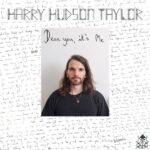
Atwood Journal: Let’s begin in the beginning. How did your musical journey start, and what drew you into the world of songwriting within the first place?
Harry Hudson Taylor: It began actually early – earlier than Hudson Taylor, even. As a child, my dad would sit me on the piano, and apparently I’d cease crying after I might mess around there. I additionally had a YouTube channel (just lately resurrected for this launch) the place I’d add all these little odd songs and covers. I used to be at all times drawn to melody, particularly to vocal concord. I felt that music might categorical one thing phrases couldn’t fairly contact. I didn’t know that on the time, however trying again, I can see that I at all times used it to get really current. I suppose songwriting simply turned the way in which I processed life afterward. I didn’t really write that many lyrics all by way of my teenagers.
Hudson Taylor had such a powerful id constructed on concord and connection. What was it like rising up and creating music along with your brother, and the way has that formed you as a solo artist at present?
Harry Hudson Taylor: Concord is a part of who I’m. Singing with Alfie taught me a lot about listening, mixing, and holding area for one more voice. That carried into every thing. Even now, on this solo chapter, I can’t assist however hear concord in every thing – the hum of a fridge, a police siren, random metropolis noise. It’s instinctive. I really like singing in concord. And I nonetheless invite different voices in as a result of I don’t suppose I’ll ever cease craving that connection by way of sound. I do miss the mix of me and my brother.
After Hudson Taylor, you re-emerged underneath the moniker Woman Chicken Lad. What did that title signify for you, and why did you ultimately resolve to launch music underneath your individual title once more?
Harry Hudson Taylor: Woman Chicken Lad was type of a sandbox play area. It gave me permission to take myself much less critically – to strive issues, experiment, make stuff that didn’t have to suit any expectations. It separated my “artwork challenge” from the on a regular basis man who pays lease and buys groceries. My complete id had been wrapped up in Hudson Taylor, so it was good to take a break from that a part of my id (my surname) for some time. However finally, one thing shifted. I felt able to launch underneath my very own title once more. Another excuse for the shift is that the Hudson Taylor model had already been nicely established and is kind of robust. It felt like an additional uphill battle to get Woman Chicken Lad going. I nonetheless maintain on to the insignia I created for Woman Chicken Lad as a part of the branding going ahead. The little Woman Chicken continues to be crucial to me.
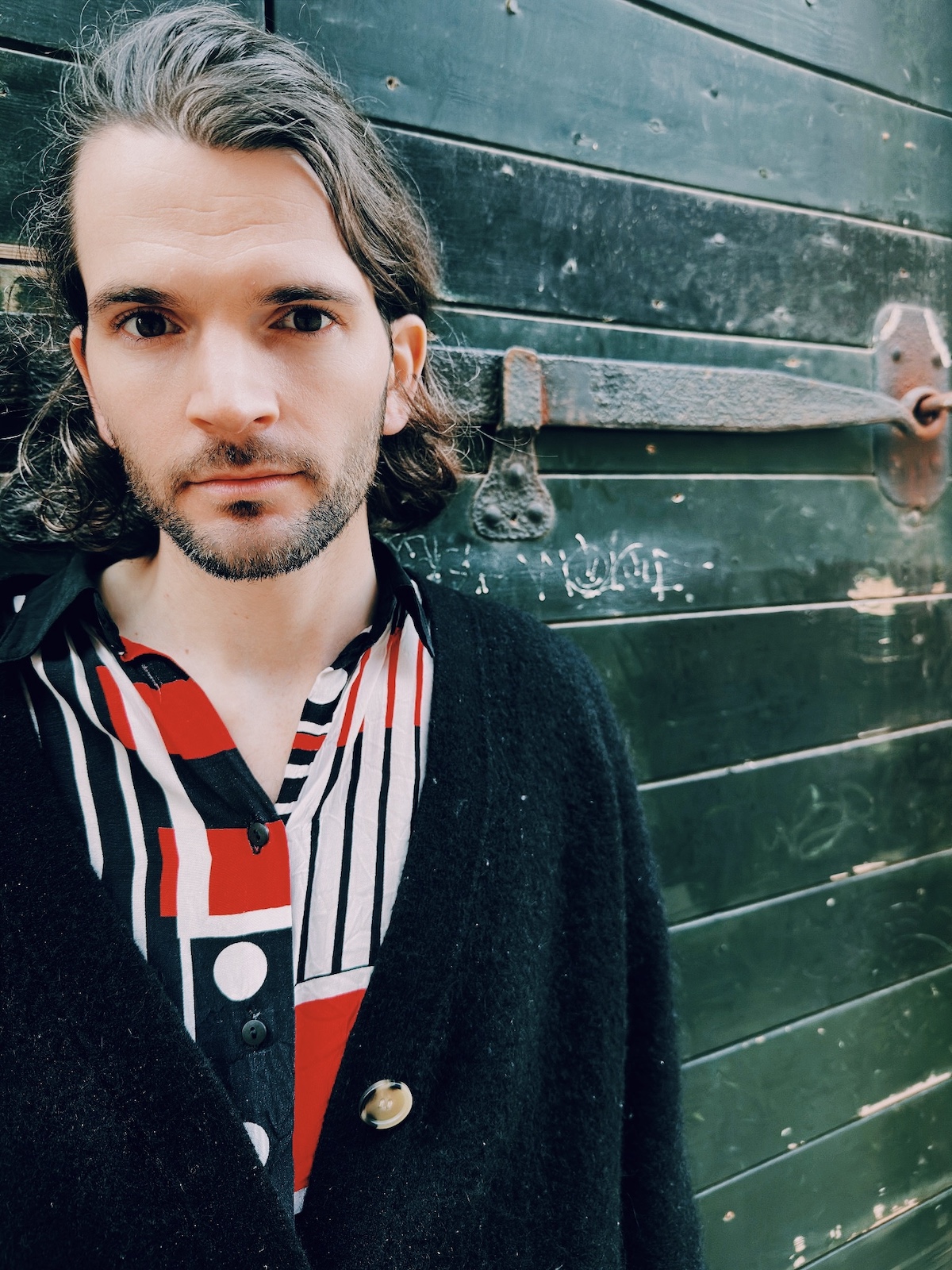
Do you see Harry Hudson Taylor as a brand new creative chapter or a return to your truest self?
Harry Hudson Taylor: Actually, it’s each. It’s new within the sense that I’ve by no means launched something like “Pricey You, It’s Me” earlier than. Nevertheless it’s additionally a return – like circling again to the voice that was beneath every thing all alongside. It’s extra susceptible to make use of your given title. Extra rooted, extra sincere. And unusually, that looks like house.
Congratulations on the discharge of “Pricey You, It’s Me.” The music feels extremely intimate and uncooked. What compelled you to share one thing that started as a personal journal entry?
Harry Hudson Taylor: It got here out of nowhere. I used to be working in a café in Berlin – my first correct job after 12 years of Hudson Taylor – and through my break, I simply began writing in my journal. I’d been listening to a great deal of hip-hop on the cafe playlist that day, and the 80 – 100BPM rhythms bought underneath my pores and skin. I wrote the piece in that rhythm and recorded it right away after I bought house that night. It felt like a obtain. I might have polished it, tightened it, made it hookier – however one thing advised me to go away it precisely because it got here out. I wanted to listen to the phrases.
How did the piece evolve from a diary entry to a spoken-word monitor with visible storytelling?
Harry Hudson Taylor: It began with a journal entry, changed into a voice be aware with a meter. Then I went house, recorded a clear vocal take, and simply adopted the intuition to construct round it. I heard a bodhrán rhythm in my head and initially discovered a loop on YouTube to make use of, and finally I requested Dermie Sheedy from Hermitage Inexperienced to document a correct cross. From there, I simply constructed textures round it – like portray a bit world the phrases might stay in. The video got here even later, spontaneously, because of my buddy Shawn Fitzgerald Ahern. He had a uncommon free day and we squeezed in a six-hour slot of filming a journey from my condo to my favorite park in Berlin, Viktoria Park. All of it occurred quick, however felt aligned.
Why did you select to maintain it in spoken phrase type reasonably than shaping it right into a melody, particularly as somebody identified for robust melodic instincts?
Harry Hudson Taylor: It simply didn’t wish to be a music. It wished to be mentioned. I write melodies on a regular basis, however this one – I don’t know – it felt like it will lose one thing if I attempted to suit it into verse-chorus-verse. It was a stream of consciousness, and I didn’t wish to interrupt that with an excessive amount of construction. It felt extra true to let it’s what it was. There’s a little little bit of a chorus which is sung. When I’ve performed the piece stay, I’ve gotten a little bit of a sing alongside happening that static “expensive you, it’s me right here to remind you what you already know.”
Spoken phrase looks like a susceptible act – not fairly singing, not fairly poetry. How did it really feel to face in that in-between area creatively?
Harry Hudson Taylor: Yeah, it was positively susceptible. Spoken phrase doesn’t allow you to disguise behind melody or concord. You’re simply on the market – your voice, your breath, your pauses. It’s very uncovered. However that was additionally the purpose. It was much less about efficiency and extra about presence. I needed to let go of sounding “good” and concentrate on sounding actual.
What was your course of for translating a private emotional area into one thing cinematic and shareable?
Harry Hudson Taylor: For me, the method wasn’t about making one thing cinematic within the conventional sense – it was extra about creating one thing that spoke on to the frightened, reactive components of myself. I used to be attempting to deal with my ego, that inner chatter, from a spot of stillness and consciousness. So reasonably than telling a narrative outwardly, I used to be holding a mirror inward. I wished to be the Inside Loving Mum or dad to my “inside youngsters.” In that means, the “cinematic” high quality got here from exhibiting the richness and depth of that inside area and the vastness of consciousness that exists beneath all of the noise. I didn’t wish to costume it up an excessive amount of or distract from that. The ambient textures, the tempo, the breath – they had been all there to help that sense of presence. Hopefully, it invitations the listener into their very own inside panorama, too.
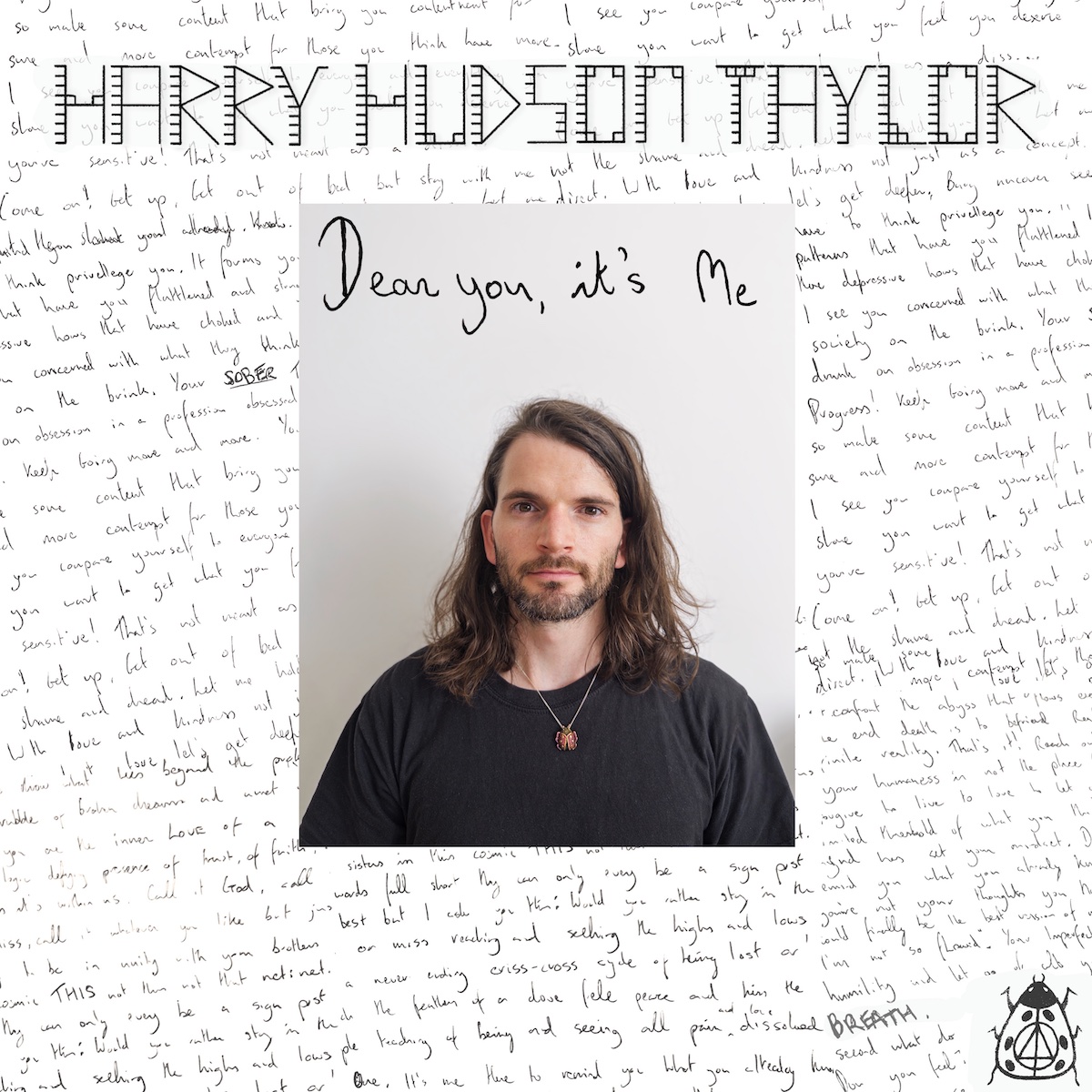
The art work incorporates the handwritten journal textual content. Why was it necessary to visually hyperlink the ultimate piece to its origin?
Harry Hudson Taylor: As a result of that’s the place it began. That journal entry is the music. I wished individuals to see that – that these weren’t lyrics I sat all the way down to craft, they had been one thing I wrote to myself, unfiltered. It made sense to let the handwriting be a part of the art work. It’s a means of claiming, “That is actual. That is from the precise web page.”
The quick movie ends in a quiet embrace. How did you direct or develop that visible metaphor, and what does it personally symbolize for you?
Harry Hudson Taylor: That second simply occurred. Wayne, the person within the video, lives close to Viktoria Par,ok the place we filmed. I requested him if he’d be up for being in it, and he mentioned sure. That ultimate hug – that was every thing. To me, it represents mentorship, help, and restoration. I’ve had individuals like that in my life – sponsors, guides, brothers. That secure power. The hug didn’t want phrases. It mentioned what the entire video was about.
You described this as one thing you “wanted to listen to.” What a part of the message feels most necessary to you now, trying again?
Harry Hudson Taylor: That I’m allowed to be the place I’m. That I don’t must know every thing. That therapeutic isn’t linear. That I can forgive myself. I believe all of us want to listen to that on occasion. We’re so good at being laborious on ourselves. This was a means of softening that voice inside.
You’re mixing folks roots with ambient textures and now spoken phrase. Do you’re feeling like style issues anymore, or are you extra concerned with emotional texture than musical class?
Harry Hudson Taylor: Style feels much less and fewer related to me now. I’m chasing emotional reality. If a music must be ambient, or acoustic, or spoken, or full of silence. I’m not as concerned with becoming right into a field anymore. I’m concerned with how one thing feels.
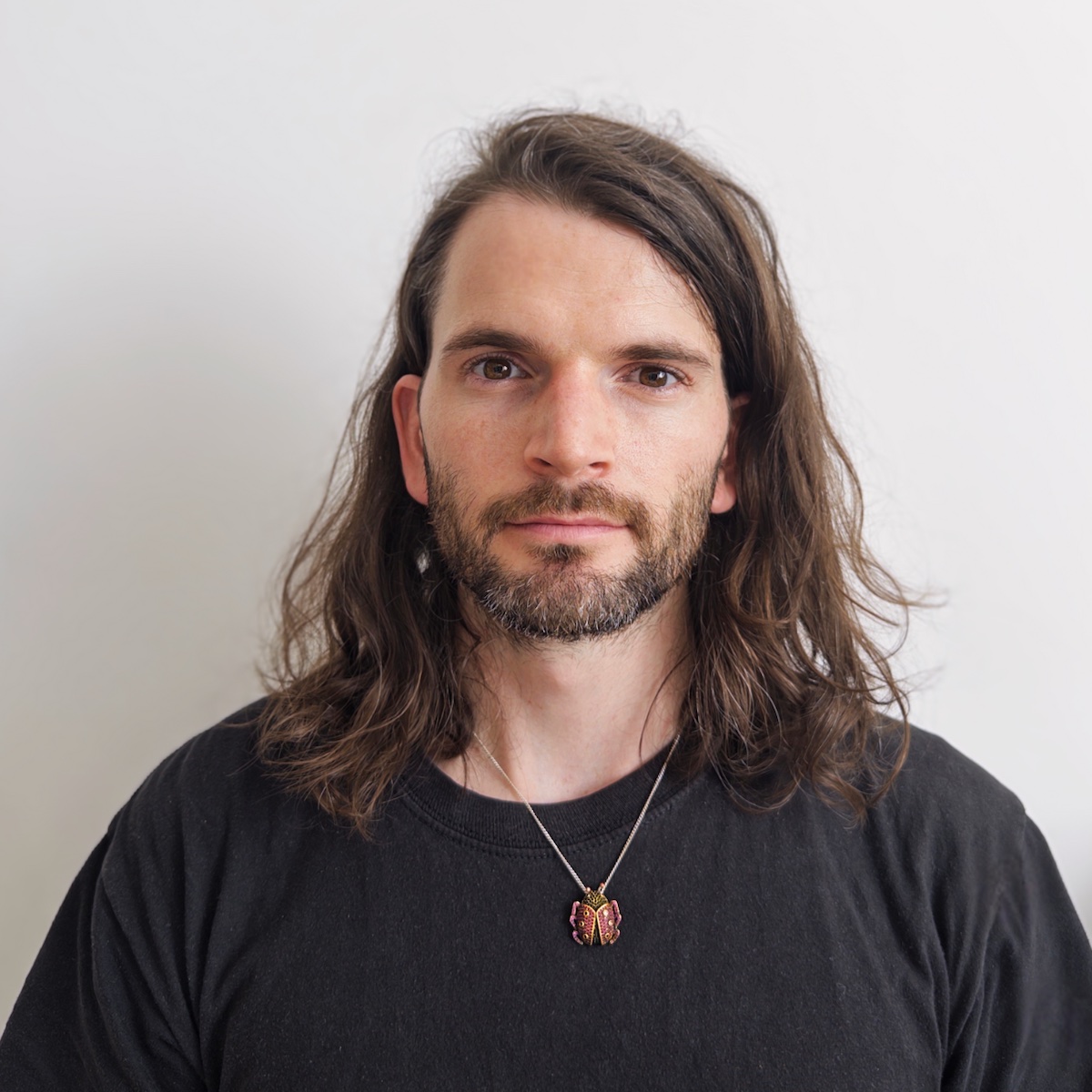
In a time when a lot music competes for consideration, you’ve created one thing quiet and reflective. Was that intentional?
Harry Hudson Taylor: Yeah. I believe there’s energy within the quiet. We’re so surrounded by noise – music, media, information, opinions – and typically essentially the most radical factor is to whisper as a substitute of shout. This wasn’t about attempting to face out. It was about being nonetheless and providing an area individuals might step into in the event that they wished to.
Now that you simply’re primarily based in Berlin, how has the town influenced your sound, your writing, or your sense of self?
Harry Hudson Taylor: Berlin gave me permission to decelerate and experiment. It doesn’t care who you might be or what you’ve accomplished earlier than. I began doing open mics once more, simply to get issues transferring, to check out new songs continuously. That helped me reconnect with songwriting in a uncooked means. Town’s additionally a bit nameless, which let me go inward and get sincere.
What has the transition from Hudson Taylor to solo artist underneath your individual title taught you about storytelling and id?
Harry Hudson Taylor: It’s taught me that your story retains altering. And that’s okay. With Hudson Taylor, I used to be one half of a concord brotherly duo. With Woman Chicken Lad, I used to be experimenting with distance and disguise. Now, underneath my very own title, I’m studying to inform the reality in a brand new means. It’s extra uncovered, but additionally extra complete. Additionally, in these years I’ve explored all kinds of various non secular practices which were about working to completely let go of id and returning to Supply consciousness. In that area, the story of Harry and my id are simply pebbles dropped on the ocean.
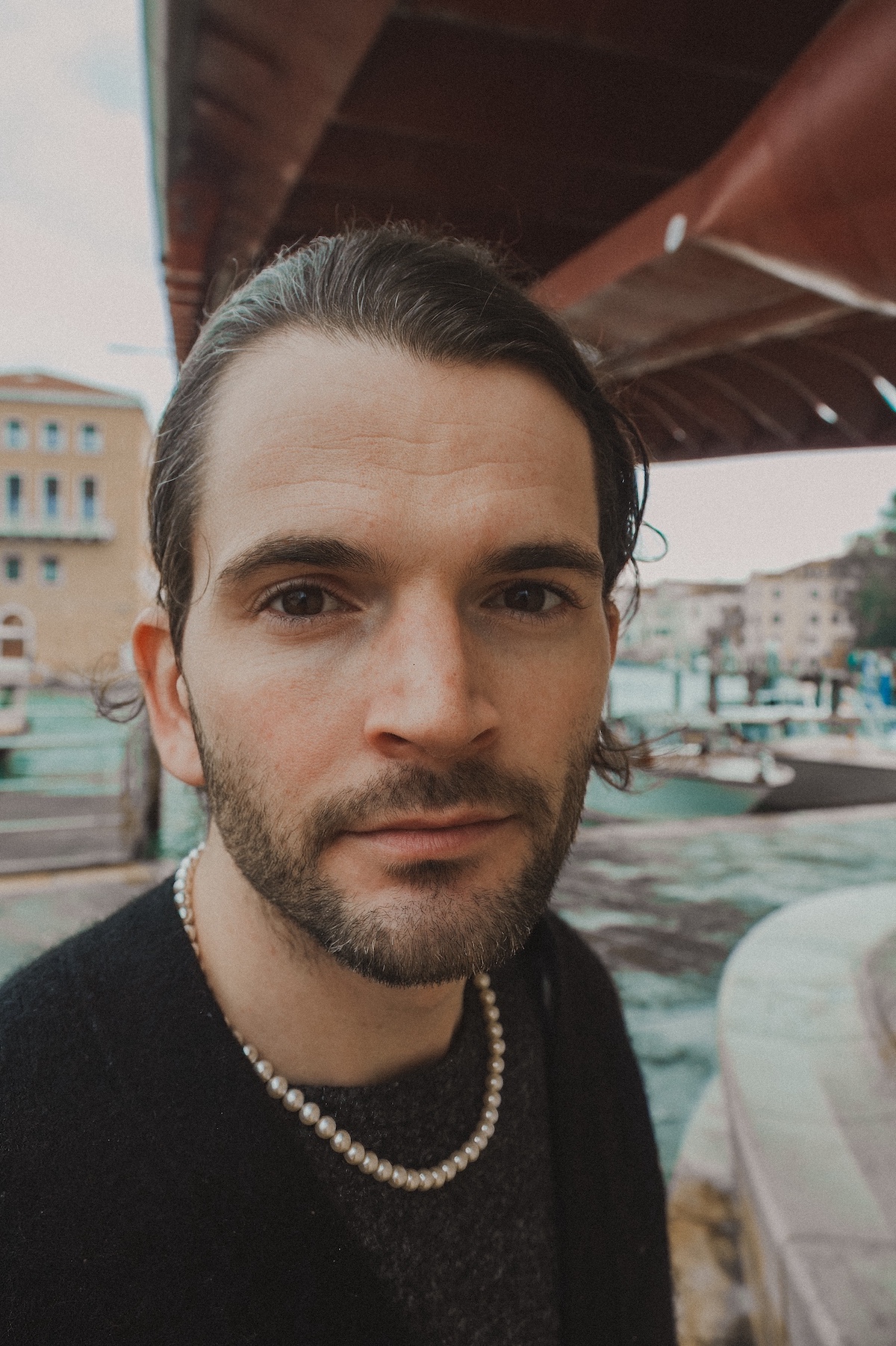
Now that you simply’ve put one thing so intimate into the world, what sort of response or dialogue do you hope it sparks with listeners?
Harry Hudson Taylor: I hope individuals really feel seen. I hope they hear one thing they’ve felt however perhaps haven’t mentioned out loud. And I’d adore it if it invitations them to mirror – on their very own story, their very own therapeutic, their very own voice. And to grasp I’m saying all of the phrases on this piece however all I actually did was put myself in a seat and allow them to come by way of., I need extra conversations about what this complete human expertise is all about.
Trying forward, how would you like your music to carry area for listeners, whether or not by way of lyrics, silence, or sound?
Harry Hudson Taylor: I need it to really feel like a pause. Like a breath. A reminder. Whether or not it’s by way of lyrics, music, melodies or silence or rawness. I need it to really feel like a spot you’ll be able to relaxation in… Someplace actual. Remembering our shared humanity.
— —
Disclosure: The author of this piece additionally serves because the artist’s publicist. All opinions are their very own, and this characteristic was written with the intention of celebrating and supporting the music.
— —
:: stream/buy Pricey You, It’s Me right here ::
:: join with Harry Hudson Taylor right here ::
— —
“Pricey You, It’s Me” – Harry Hudson Taylor
— — — —

Hook up with Harry Hudson Taylor on
Fb, 𝕏, TikTok, Instagram
Uncover new music on Atwood Journal
© courtesy of the artist
:: Stream Harry Hudson Taylor ::

